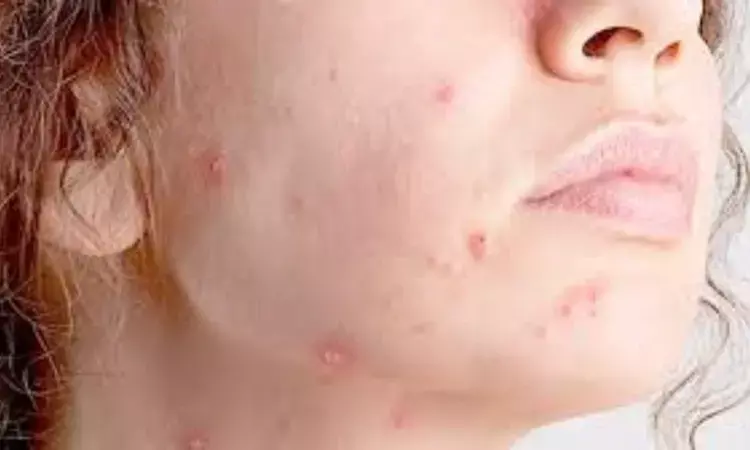- Home
- Medical news & Guidelines
- Anesthesiology
- Cardiology and CTVS
- Critical Care
- Dentistry
- Dermatology
- Diabetes and Endocrinology
- ENT
- Gastroenterology
- Medicine
- Nephrology
- Neurology
- Obstretics-Gynaecology
- Oncology
- Ophthalmology
- Orthopaedics
- Pediatrics-Neonatology
- Psychiatry
- Pulmonology
- Radiology
- Surgery
- Urology
- Laboratory Medicine
- Diet
- Nursing
- Paramedical
- Physiotherapy
- Health news
- Fact Check
- Bone Health Fact Check
- Brain Health Fact Check
- Cancer Related Fact Check
- Child Care Fact Check
- Dental and oral health fact check
- Diabetes and metabolic health fact check
- Diet and Nutrition Fact Check
- Eye and ENT Care Fact Check
- Fitness fact check
- Gut health fact check
- Heart health fact check
- Kidney health fact check
- Medical education fact check
- Men's health fact check
- Respiratory fact check
- Skin and hair care fact check
- Vaccine and Immunization fact check
- Women's health fact check
- AYUSH
- State News
- Andaman and Nicobar Islands
- Andhra Pradesh
- Arunachal Pradesh
- Assam
- Bihar
- Chandigarh
- Chattisgarh
- Dadra and Nagar Haveli
- Daman and Diu
- Delhi
- Goa
- Gujarat
- Haryana
- Himachal Pradesh
- Jammu & Kashmir
- Jharkhand
- Karnataka
- Kerala
- Ladakh
- Lakshadweep
- Madhya Pradesh
- Maharashtra
- Manipur
- Meghalaya
- Mizoram
- Nagaland
- Odisha
- Puducherry
- Punjab
- Rajasthan
- Sikkim
- Tamil Nadu
- Telangana
- Tripura
- Uttar Pradesh
- Uttrakhand
- West Bengal
- Medical Education
- Industry
Natural daylight photodynamic therapy with keratolytics improve actinic keratoses outcomes

A recent study published in the Journal of the European Academy of Dermatology and Venereology challenges the conventional method of treating actinic keratoses (AKs) through Methyl Aminolevulinate (MAL) photodynamic therapy (PDT). Traditionally, this process involves the removal of crusts and scales through curettage followed by the application of MAL cream which often causes intense pain for the patients.
This research was conducted on a total of 40 patients with multiple AKs on the face and/or scalp to compare the efficacy, safety, and patient satisfaction of standard natural daylight PDT (n-DL-PDT) with curettage versus a new approach. In this new app8roach, curettage was omitted and patients were prepared at home with keratolytics with a 30% urea cream applied twice daily for a week.
After the completion of this study, the findings indicated similarity in efficacy between the two methods analyzed. The mean reduction in the number of AK lesions three months post-treatment was 54.7% in the group without curettage (-Cur) and 58.7% in the group with curettage (+Cur). Also, the differences in efficacy and patient satisfaction were statistically insignificant. The pain scores reported during and after daylight exposure were low and comparable in both the groups, and no unexpected adverse events were observed.
The key highlights of this research suggest that curettage might not be essential for the full treatment effect of n-DL-PDT. This study was conducted in a real-life setting and underscores that the n-DL-PDT protocol could be revolutionized by replacing curettage with keratolytics. This offers a more patient-friendly approach and also presents a major advancement in the field of dermatological treatments.
Source:
Caccavale, S., Boccellino, M. P., Brancaccio, G., Alfano, R., & Argenziano, G. (2023). Keratolytics can replace curettage in daylight photodynamic therapy for actinic keratosis on the face/scalp: A randomized clinical trial. In Journal of the European Academy of Dermatology and Venereology. Wiley. https://doi.org/10.1111/jdv.19687
Neuroscience Masters graduate
Jacinthlyn Sylvia, a Neuroscience Master's graduate from Chennai has worked extensively in deciphering the neurobiology of cognition and motor control in aging. She also has spread-out exposure to Neurosurgery from her Bachelor’s. She is currently involved in active Neuro-Oncology research. She is an upcoming neuroscientist with a fiery passion for writing. Her news cover at Medical Dialogues feature recent discoveries and updates from the healthcare and biomedical research fields. She can be reached at editorial@medicaldialogues.in
Dr Kamal Kant Kohli-MBBS, DTCD- a chest specialist with more than 30 years of practice and a flair for writing clinical articles, Dr Kamal Kant Kohli joined Medical Dialogues as a Chief Editor of Medical News. Besides writing articles, as an editor, he proofreads and verifies all the medical content published on Medical Dialogues including those coming from journals, studies,medical conferences,guidelines etc. Email: drkohli@medicaldialogues.in. Contact no. 011-43720751


